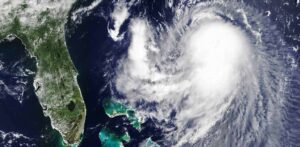 We read the article, “Rheumatologists Share Lessons Learned in the Wake of Hurricane Ida” (July 2022, The Rheumatologist), with great interest. This poignant account of the impacted patients and rheumatologists provides invaluable planning tips regarding medication loss, access to pharmacies and medical records, and strategies to avoid practice losses. The critical lessons presented in this article should be expanded to include other extreme weather events, such as heat waves and air pollutants from massive wildfires, that are expected to occur with greater frequency and ferocity due to climate change.1,2 Their potential for adverse health outcomes for patients with rheumatic diseases has not been well studied, but as illustrated in this article, major storms can cause a great disruption in the routine delivery of healthcare.3
We read the article, “Rheumatologists Share Lessons Learned in the Wake of Hurricane Ida” (July 2022, The Rheumatologist), with great interest. This poignant account of the impacted patients and rheumatologists provides invaluable planning tips regarding medication loss, access to pharmacies and medical records, and strategies to avoid practice losses. The critical lessons presented in this article should be expanded to include other extreme weather events, such as heat waves and air pollutants from massive wildfires, that are expected to occur with greater frequency and ferocity due to climate change.1,2 Their potential for adverse health outcomes for patients with rheumatic diseases has not been well studied, but as illustrated in this article, major storms can cause a great disruption in the routine delivery of healthcare.3
To meet the health needs of our patients and the practice concerns of our providers, the ACR should actively address planning for extreme weather events related to climate change.4 A starting point would be to post the author’s practical planning tips for dealing with major storms on the ACR website for providers and patients. Additional advice regarding the consequences of climate change, such as heat waves and massive wildfires, should be developed and included.
Climate change represents a public health emergency that will continue to pose significant threats to health on multiple levels, even beyond extreme weather events. We are witnessing impacts on air pollution, drought, changes in vector ecology, supply chain issues and food insecurity. This is a watershed moment for our global community and represents an unprecedented opportunity for our medical societies, including the ACR, to step up to help address this challenge. Patient education, advocacy and research have never been so critical.3
Sincerely,
Thomas Bush, MD, Department of Medicine, Santa Clara Valley Medical Center, San Jose, Calif.
Paul F. Dellaripa, MD, Department of Medicine, Division of Rheumatology, Brigham and Women’s Hospital, Boston
Tamiko R. Katsumoto, MD, Department of Medicine, Division of Immunology and Rheumatology, Stanford University School of Medicine, Stanford, Calif.
References
- Woodward AJ, Samet JM. Climate change, hurricanes, and health. Am J Public Health. 2018 Jan;108(1):33–35.
- O’Neill MS, Ebi KL. Temperature extremes and health: Impacts of climate variability and change in the United States. J Occup Environ Med. 2009 Jan;51(1):13–25.
- Dellaripa PF, Bush T, Miller FW, et al. The climate emergency and the health of our patients: The role of the rheumatologist. Arthritis Rheumatol. 2022 Jun 28. Online ahead of print.
- Bush T. Potential adverse health consequences of climate change related to rheumatic diseases. J Clim Chang Health. 2021 Aug;3.


